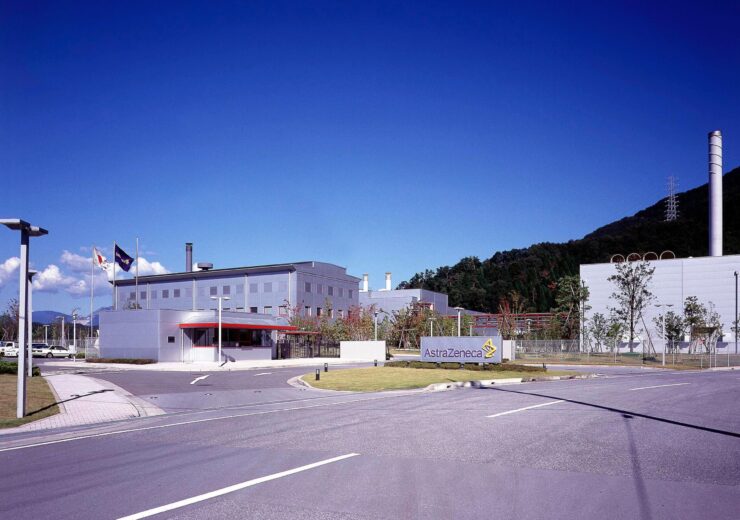The approval was based on the positive findings from the pivotal, global ALPHA Phase 3 trial in which Voydeya met the primary endpoint of change in haemoglobin from baseline to week 12

AstraZeneca’s Maihara factory in Japan. (Credit: AstraZeneca)
Alexion, AstraZeneca Rare Disease, a group within AstraZeneca focused on rare diseases, has received approval from the Japanese Ministry of Health, Labour and Welfare (MHLW) for Voydeya (danicopan) combination therapy to treat certain adults with paroxysmal nocturnal haemoglobinuria (PNH).
Voydeya is a first-in-class oral factor D inhibitor developed as an add-on to proven standard-of-care Ultomiris or Soliris.
It is now indicated in Japan in combination with C5 inhibitor therapy when patients show insufficient response to such C5 inhibitors.
The approval was based on the positive findings from the pivotal, global ALPHA Phase 3 trial.
It evaluated the efficacy and safety of Voydeya in patients with PNH who experienced clinically significant extravascular haemolysis (EVH).
According to the results, the factor D inhibitor met the primary endpoint of change in haemoglobin from baseline to week 12.
It also met all key secondary endpoints, including transfusion avoidance and change in the Functional Assessment of Chronic Illness Therapy – Fatigue (FACIT-Fatigue) score.
In addition, Voydeya was generally well tolerated with no new safety concerns.
Alexion CEO Marc Dunoyer said: “More than 20 years of PNH research has cemented the role of C5 inhibition in effectively treating this rare disease, and we continue to innovate for this community.
“Voydeya, as an add-on to standard-of-care, is a testament to our determination to address the needs of those impacted by clinically significant EVH without disruption to proven therapy.
“We look forward to bringing this important advancement to the subset of PNH patients in Japan who are living with this condition.”
The factor D inhibitor has received Breakthrough Therapy designation by the US Food and Drug Administration and PRIority MEdicines (PRIME) status by the European Medicines Agency.
It has also secured Orphan Drug Designation in the US, EU and Japan. Voydeya’s regulatory submissions are currently under review with multiple global health authorities.
Alexion is also assessing Voydeya as a possible monotherapy for geographic atrophy in a Phase 2 clinical study.
